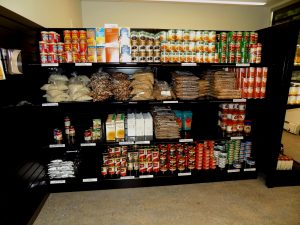Pronouns
She/Her/Hers
Major/ minor
Major in Public Health, Health Promotion, and Health Behavior
Minor in Environmental and Occupational Health
Career Aspirations
I am passionate about the safety perspective of human interaction in their environment. Ideally, I would like to pursue a Masters degree in Public Health specifying in Environmental and Occupational Health. I see myself pursuing a career as a health and safety engineer, but I’m open to exploring different opportunities as well.
Why did you want to work at the HSRC?
I resonate with the vision of the HSRC, centering on community efforts to create opportunities that will provide the necessary tools leading to success. I wanted to be part of a team actively working towards providing more resources to students and community members.
I first completed my health practicum (H310) here, and after I was eager to continue my connection at the HSRC.
What will you be working on?
My internship is split between the fall and winter term of this year. In the fall, I focused on a few projects including hazard identification, literature review, food story, and SNAP application workshops at the HSRC and the Wellness Nook at the MU. In the winter I will be elaborating on some of these concepts while working on a variety of other projects including a mobile SNAP workshop and updating food pantry policies.
I am also at the HSRC to be a helping hand, I’m often around during food pantries, food deliveries, and other events to provide extra support.
What are your favorite things to do in Corvallis?
One of my favorite things to do in Corvallis is to go to the Darkside Cinema in downtown Corvallis. They usually play smaller independent movies, and the atmosphere is so cozy without being overly pretentious.
Favorite new movie?
Parasite by Bong Joon-ho


